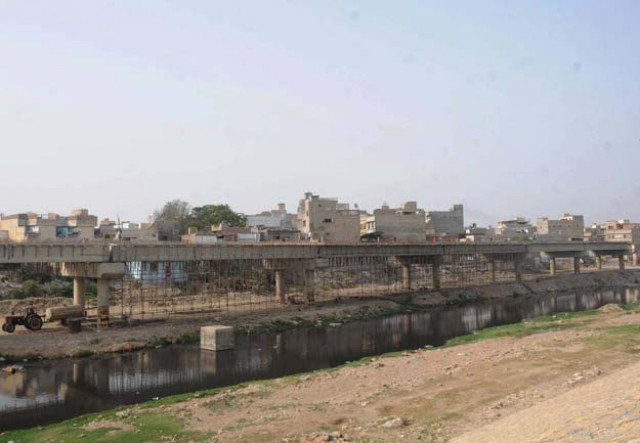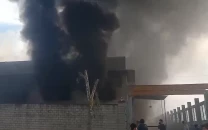Leh Expressway sewage plant on chopping block
RDA chief says will continue efforts for the project

A plan to set up a sewage treatment plant along the Leh Expressway project has been axed due to its high annual maintenance costs, estimated to be around Rs1.5 billion per year, officials said.
“The flow of sewage will now be diverted to the Soan River, which is already polluted and with the addition of more affluent, it will become a flowing gutter,” an officer of the Rawalpindi Development Authority (RDA) told The Express Tribune, The officer requested anonymity because he was not authorised to speak to the media.
The official pointed out that the Asian Development Bank and Punjab government had jointly purchased 6,000 kanals in the Gorakhpur area along the Adiala Road to build the sewage treatment plant in 2008. The land has been fenced and under the administration of the Water and Sanitation Agency (WASA).
The provincial government had decided to start the long-delayed Leh Expressway under the Public-Private Partnership (PPP). The project papers include the sewage treatment plant, which will treat water for irrigation and produce natural fertiliser.
However, given the high annual maintenance and operational charges, the sewage treatment plant has been excluded from the expressway project.
Sources said that under a new plan, sewage will now be diverted into the Soan River through large trenches dug along the Leh Expressway. This could turn Sawan River into a flowing sewer and a source of environmental pollution and spread of disease.
When contacted, Rawalpindi Development Authority (RDA) Chairman Tariq Mahmood Murtaza said that he considered the sewage treatment plant to be necessary for the project and that he will continue his efforts to have it included.
RDA chairman said that 35 kanals of land owned by the Punjab government was offered to investors in exchange for construction of the Leh Expressway on a build-operate-transfer basis. However, the option of levying toll tax on this route does not seem feasible, he said.
He said that experts were considering all options for the financial model for the construction of Leh Expressway. He said the project will not only provide a new route for traffic but will also reduce the risk of flooding in the city due to Nulla Leh.
Murtaza said that diverting sewage through large trenches dug along the expressway will prevent untreated effluent from falling into the Nula Leh and Soan River. These trenches will channel sewage to treatment plants from where it will be released into rivers after extraction of poisonous substances.
He further said that the expressway will be designed in a manner that clean rainwater flows into the middle of the levee to replenish the seasonal streams and reduce environmental pollution.
Published in The Express Tribune, July 30th, 2020.


1724319076-0/Untitled-design-(5)1724319076-0-208x130.webp)
















COMMENTS
Comments are moderated and generally will be posted if they are on-topic and not abusive.
For more information, please see our Comments FAQ